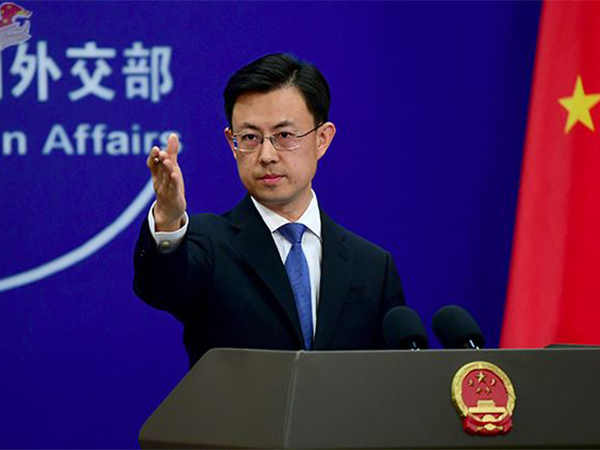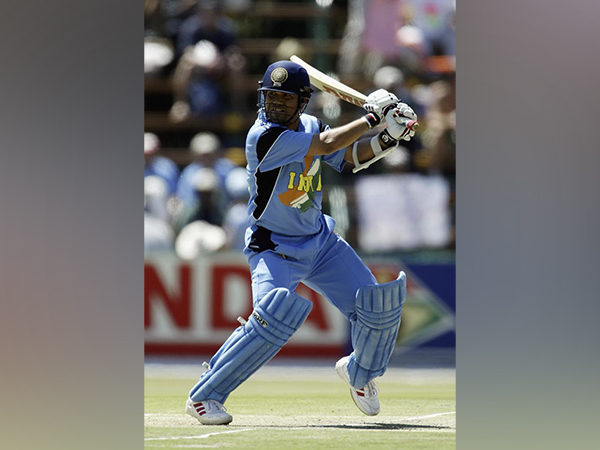Ultra-Orthodox Jews are a state within a state in Israel
May 10, 2021

By John Solomou
Nicosia [Cyprus], May 10 : The Meron Tragedy, the worst civilian disaster in Israel's modern history in which 45 people were killed and about 150 were injured shows that ultra-Orthodox Jews - called the Haredim (singular Haredi) - are really a state within a state in Israel and that due to the fractious nature of Israeli political scene, they are effectively outside the control of the state.
On April 30, in the largest gathering since the start of the coronavirus pandemic in Israel, tens of thousands Haredi people gathered at the Mount Meron Tomb of Rabbi Shimon Bar Yochai, where ultra-Orthodox Jews flock to mark the Lag B'Omer holiday, praying and dancing around bonfires. The tragedy started after some attendees slipped on steps, which caused dozens more to fall. Dozens of people fell on top of one another. A large number of them were crushed and lost consciousness.
The narrow passageway where the victims fell and were crushed was built 20 years ago - without planning permission - for the purpose of keeping men attending the bonfires completely out of sight of women, who have a second-class status in the Haredi community. In the past, they closed the passageway during the lighting ceremony itself, but nobody did anything this time and according to some estimates about 100,000 people gathered at the site.
Nobody assumed responsibility for the disaster and it is unlikely that the political system -for fear of losing desperately needed votes in the Knesset (the Israeli Parliament)- will allow the ultra-Orthodox to be blamed. Meanwhile, the Justice Ministry announced that a police internal investigations department had begun a probe into possible critical misconduct of officers who were on the site.
Haaretz journalist Anshel Pfeffer points out: "The past 20 years have seen many controversies rage around Mount Meron. There was a lengthy battle in court between the state, which wanted to take ownership of the site, and the religious foundations that divided control over it between themselves. The state unsurprisingly gave up."
Over the years government officials, rabbis, politicians, ombudsmen have expressed grave concern about the safety of pilgrims in Israel's biggest religious festival, but nothing was done about it. Mordechai Halperin, former mayor of the village Meron, did not mince his words."It's a place without law. Everybody could do or build what they wanted."
All over the world, ultra-Orthodox people live in enclave culture, with their own educational systems, community systems, even their own dietary laws dealing with the foods that Jews are permitted to eat, in order to be segregated. In Hebrew, the Haredim are "those who tremble" in the sight of God because they are God-fearing.
In Israel, ultra-Orthodox society has become a 'society of learners': Most of the men study Torah most of their lives. So in Israel, the Haredi educational system, despite state funding, does not teach a core curriculum of math, science and English. Less than 50 percent of Haredi men participate in the workforce, while the rest depend on a lifelong stipend from the state for working for religious functionaries. Women participate in a high level in the labor market because someone needs to earn money for their families. They are expected to raise children, run the household and work, but they are not allowed to run for parliament, and there are even attempts to silence women from singing in public.
Israel has mandatory army service for men and women but since the country's creation in 1948 the Haredim were exempted from military service as well as from working, so as to focus on religious study. This is something that many Israelis consider unacceptable and is the cause of enmity between secular and ultra-Orthodox Israelis.
Some ultra-Orthodox sections say that there should not be a Jewish state and reject Zionism, but at the same time, continue to get the benefits of the state, for example children allowances make it possible for thousands of Haredi families to make ends meet, granting stipends for those studying religious texts full time, funding for their schools etc.
This autonomy existed and was reinforced by each and every Israeli government since the state's establishment, but gradually has made the ultra-Orthodox areas a state within a state, where laws and decisions of the government can be ignored, as rabbinical edict trumps state law. This became evident in the fight against COVID-19, where pandemic precautions and lockdown was largely ignored and the ultra-Orthodox continued to have mass weddings and large gatherings and prayers. As a result, although Israel is one of the leading countries in the world concerning vaccinations, at the same time it has the ninth highest infection rate globally.
Ordinary Israelis are exasperated with the ultra-Orthodox Jews, particularly with their exemption from military service and the fact that they play the role of kingmaker in the Knesset, allowing as a rule the formation of nationalist governments (e.g. Netanyahu')and as a result the government is generally forced to act according to the wishes of the Haredim, who are always part of the governing coalition.
David Perry, former Middle East Editor of the Associated Press, points out, however, that things may soon change. He says: "Several parties in the center-left bloc have made changing the existing framework in the state's relationship with the Haredim a centerpiece of their political agenda, including Yair Lapid's Yesh Atid party, and Avigdor Liberman's Yisrael Beiteinu party, with its base of secular Russian-speaking immigrants (their campaign's main slogan is "a government without Haredim"). "
If Perry is correct and these parties succeed to form a government the ultra-Orthodox "state within a state" in Israel may be disbanded.
The author of this Opinion piece is John Solomou.


















